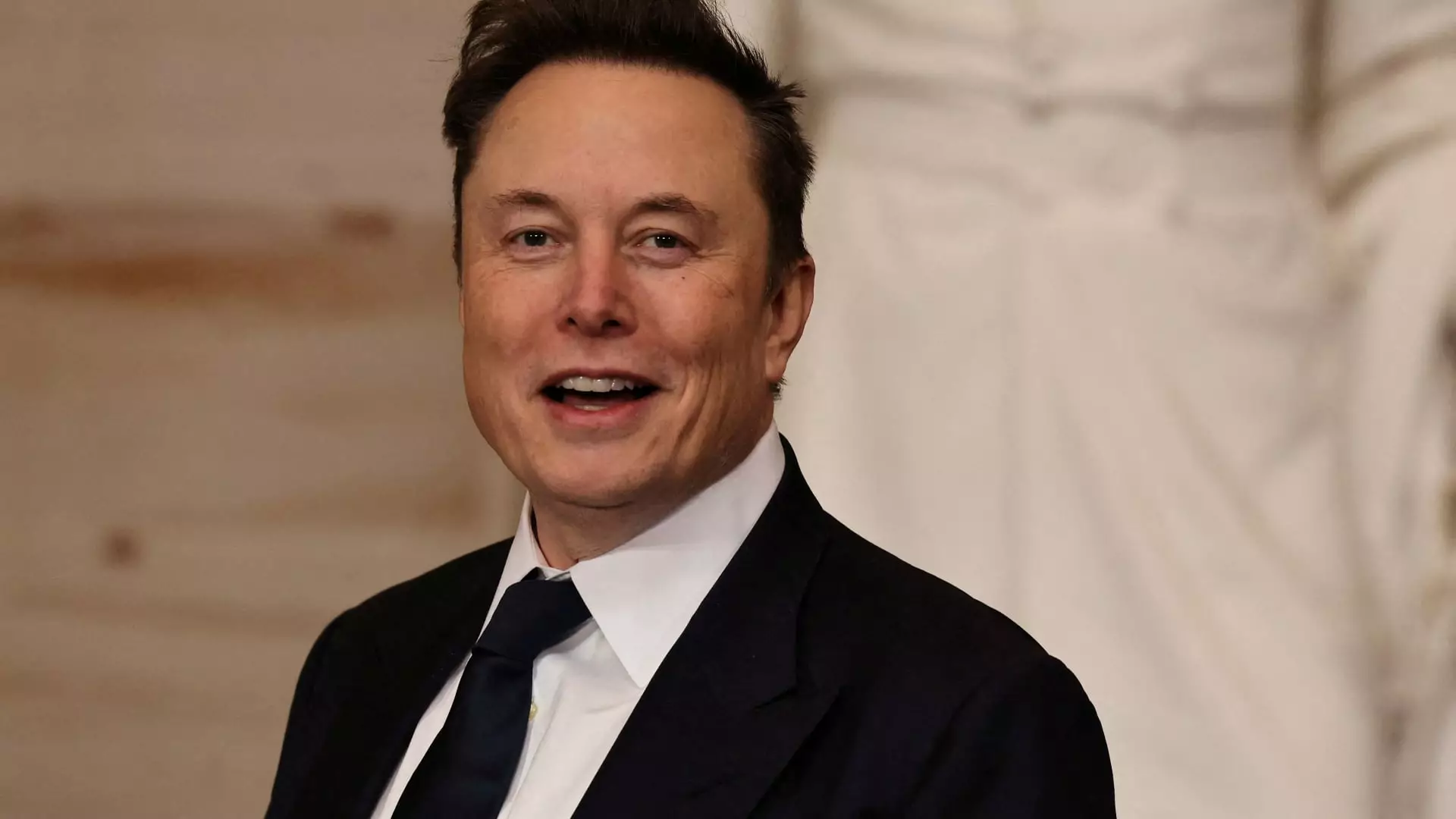In today’s capitalism, billionaire entrepreneurs like Elon Musk have redefined what loyalty to a company really means. Far from the traditional image of founders devoted to their enterprises, Musk’s recent moves demonstrate a disconcerting trend: the prioritization of personal wealth and influence over corporate allegiance. Tesla’s insistence on granting Musk an unprecedented pay package, ostensibly to keep him committed, reveals more about the fragility of corporate loyalty than about his dedication. It underscores a troubling reality: the modern billionaire’s allegiance is fluid, often dictated more by personal gain and strategic positioning than by genuine commitment to the companies they helped create.
Musk’s reliance on private ventures like SpaceX and xAI illustrates this shift. While Tesla once represented the core of his wealth, it now accounts for less than half. His expanding stake in space exploration and artificial intelligence reflects a pursuit of diversification, yet it also signals a distancing from Tesla’s traditional corporate identity. The message is clear—ultimately, Musk’s loyalty is to his expanding empire of private ventures, not to Tesla’s long-term shareholders or its mission. This erosion of corporate loyalty raises critical questions about the stability of large-scale capitalism driven by such relentless individualism.
The Power of Wealth and the Illusion of Control
The staggering valuation of Musk’s private holdings further complicates the narrative. Projects like SpaceX and xAI are not just ventures—they are reflections of Musk’s ambitions for dominance in industries that will shape the future. Their valuations—close to or exceeding those of Tesla—highlight how private wealth is increasingly overshadowing public company stock. Yet, this shift also exposes a dangerous vulnerability: the vast influence Musk wields is contingent upon his control of these private assets rather than the tangible, operational success of Tesla.
The proposed record-breaking pay package illuminates this truth. It is not a mere reward for past accomplishments but a strategic move to retain his focus amid growing opportunities elsewhere. This compensation plan, tied to Tesla’s future valuation targets, hints at Musk’s desire to secure his influence over the company well into its next era. However, it also suggests that Musk’s emotional and strategic ties to Tesla are secondary to his private interests. The implication is profound—how much of Tesla’s future is truly at the mercy of its shareholders, and how much is dictated by Musk’s personal ambitions?
The Myth of the Self-Made Magnate
Despite his image as a self-made innovator, Musk’s wealth and influence exemplify a broader myth—that entrepreneurs are singular visionaries who build everything from the ground up. In reality, his success hinges on a complex web of private valuations, strategic stakes, and political navigating of shareholder expectations. The enormous valuations of xAI and SpaceX demonstrate how private markets have inflated Musk’s wealth beyond the tangible performance of Tesla itself.
This disparity raises a critical reflection: the perception of Musk as a pioneering genius is, to a large extent, built on speculation and hush-hush private valuations, rather than consistent public performance. It questions whether today’s billionaire class truly earns its riches through operational excellence or whether they exploit regulatory loopholes, valuation bubbles, and the spectacle of innovation.
The Central Question: Are We Enabling a New Feudalism?
Perhaps most unsettling is how the current system amplifies a form of modern feudalism, where a handful of ultra-wealthy individuals wield disproportionate influence over sprawling networks of private companies. Musk’s stake in SpaceX and xAI now eclipses his Tesla holdings, giving him control over industries whose strategic importance cannot be overstated. This concentration of wealth and power is inherently dangerous because it sidesteps traditional democratic accountability.
The push for Musk’s record pay package—pending shareholder approval—serves as a stark reminder: the system is crafted to benefit elites at the expense of broader societal interests. For all the talk of innovation and technological progress, what we are witnessing is the entrenchment of a new aristocracy that operates outside normal checks and balances. The irony is that these ventures are often promoted as the future—futuristic technologies promising progress—yet they are governed by a system that resembles a plutocratic oligarchy more than a meritocratic meritocracy.

